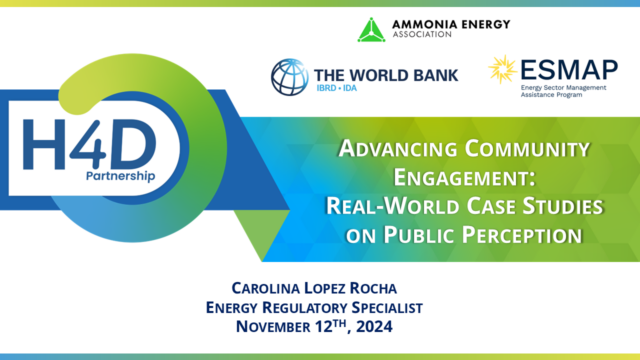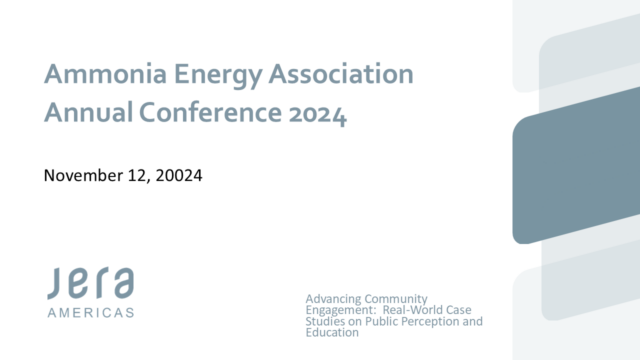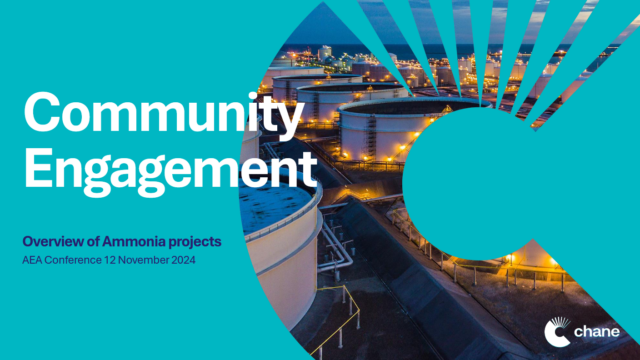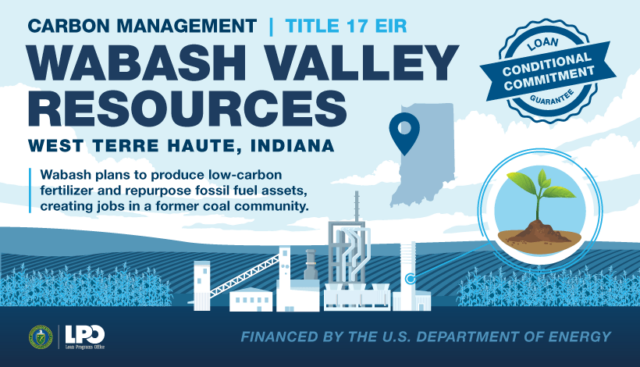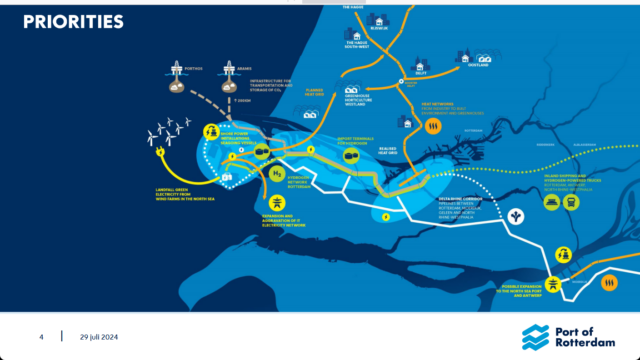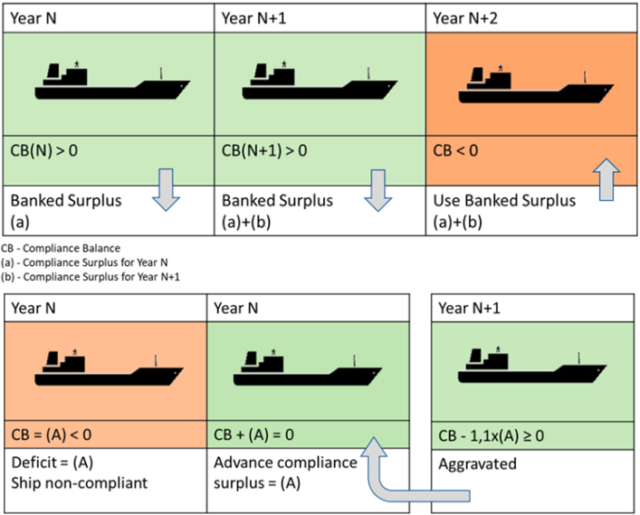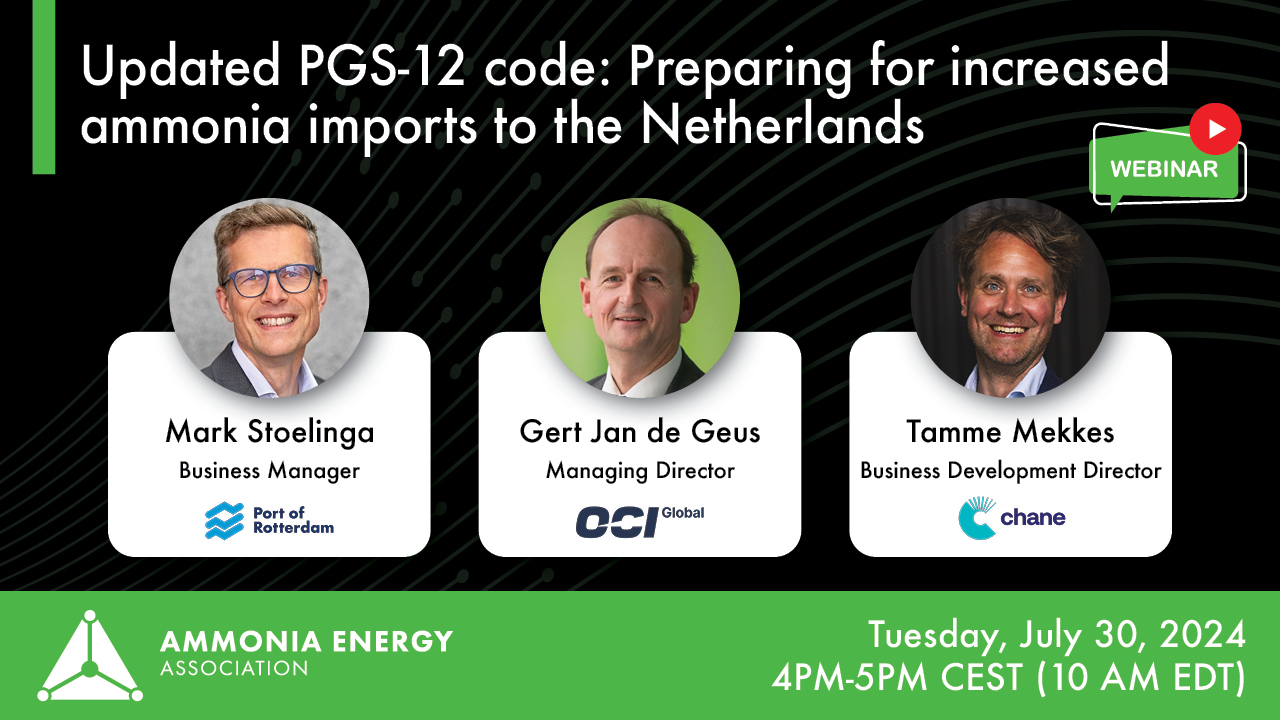Policy
Global Hydrogen Review 2024: FID doubles, low-emission ammonia takes center stage
As shown in the IEA’s recently released Global Hydrogen Review 2024, the cumulative hydrogen production capacity reaching Final Investment Decision has doubled compared to last year. Promisingly, low-emission ammonia comprises a significant portion of both the mature project pipeline and secured offtake volume.
Wabash Valley Resources to receive $1.6 billion in DoE support
The US Department of Energy will provide up to $1.6 billion in loan guarantees for Wabash Valley Resources to finance their CCS-based ammonia production project in Terre Haute, Indiana. Once completed, the project would be Indiana’s only ammonia plant, producing low-emission fertilizer for use in the US Corn Belt.
Updated PGS-12 code: Preparing for increased ammonia imports to the Netherlands
In our July episode of Project Features, we were joined by the Port of Rotterdam, OCI Global and Chane to explore current and future ammonia imports into Rotterdam. With significant ammonia import targets set for 2050, terminal projects are already underway in Rotterdam, including a four-phase expansion of OCI Terminal Europoort, and a new distribution hub from Chane. These developments will proceed according to a modern, updated set of guidelines for ammonia storage and handling in the Netherlands, known as PGS-12.
FuelEU: countdown to entry into force
The FuelEU Maritime Regulation is set to launch on August 31, requiring companies to submit monitoring plans ahead of its full implementation in January 2025. With modest initial targets and sophisticated compliance mechanisms like banking, borrowing, and pooling, the scheme offers flexibility while driving innovation in sustainable maritime technologies. The scheme also offers extra incentives for companies to proactively embrace Renewable Fuels of Non-Biological Origin (RFNBOs), before mandates enter into force next decade.
World Bank to provide a further $1.5 billion for Indian renewable projects
The new loan from the World Bank will go towards programs that support the production of hydrogen via electrolysis, as well as the manufacture of electrolyser units themselves. In June 2023, an initial $1.5 billion was provided from the World Bank to assist implementation of key hydrogen policy measures in India.
Updated PGS-12 code: Preparing for increased ammonia imports to the Netherlands
Meet the Port of Rotterdam, OCI Global and Chane, three organisations at the forefront of preparing the Netherlands for increased ammonia imports. In this webinar, learn how updates to PGS-12 - the Dutch national guideline for ammonia storage and handling - will help unlock expanded ammonia imports to Rotterdam and other key ports.
Indian government outlines renewable ammonia subsidy scheme
The Solar Energy Corporation of India has released final details for the subsidy scheme, which will assist the decarbonisation of fertiliser production in India. Eleven renewable ammonia production projects will be matched to eleven fertiliser manufacturers in a reverse auction process, with annual tonnages and delivery schedules for ammonia already set.
